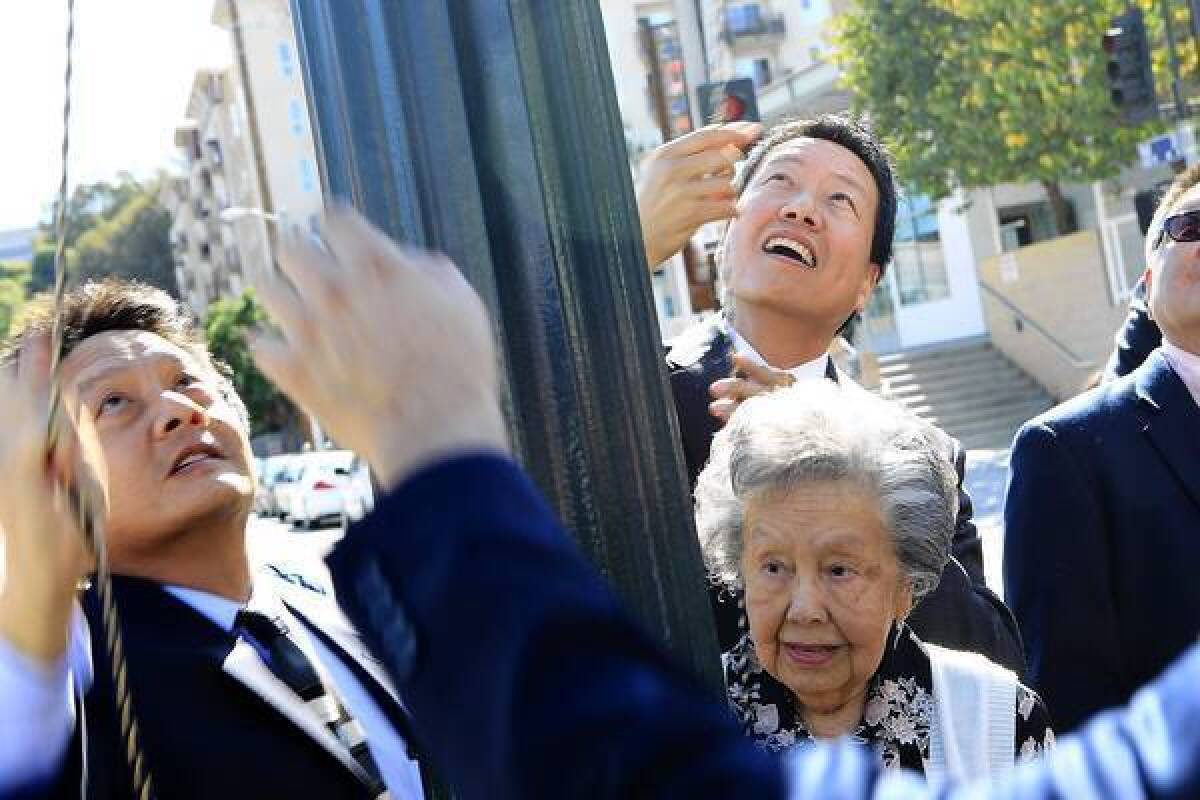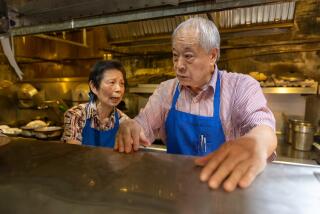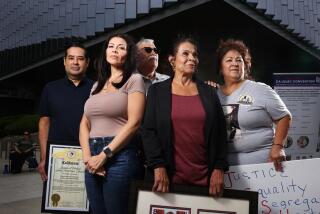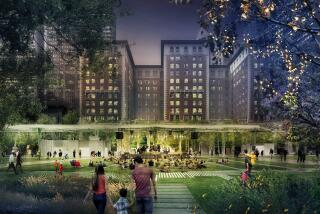Chinatown landmark named for pioneering jurist

- Share via
He was the first Chinese American graduate of Stanford Law School and the first Chinese American judge to be appointed to the bench in the continental United States.
On Friday, he became the first Chinese American to have a Los Angeles landmark named after him: Judge Delbert E. Wong Square, which encompasses the intersection of Hill and Ord streets at the western edge of Chinatown.
Councilman Ed Reyes hopes that someday the stretch of Hill Street that runs in front of the Chinatown public library will be named after Wong, who died in 2006 at age 85. Wong and his wife, Dolores, were instrumental in getting the library built, so the location would be fitting.
“The square is a starting point,” said Reyes, who presided over the dedication.
A street in Little Tokyo bears the name of Judge John Aiso, the nation’s first Japanese American judge.
Wong was born in the Central Valley town of Hanford in 1920, the son of a grocer from China’s Guangdong province. The family later moved to Bakersfield, where Chinese and other minorities were restricted to the balconies of movie theaters and could only use the public swimming pool on Fridays, according to an oral history by Wong’s son, Marshall Wong.
Wong graduated from UC Berkeley and enlisted in the Army Air Forces during World War II. As a navigator on a B-17 Flying Fortress, he completed 30 bombing missions in Europe, earning a Distinguished Flying Cross and four Air Medals.
When he returned home, Wong decided to attend law school. His parents disapproved, fearing that racial prejudice would prevent him from finding work.
After graduating from Stanford, Wong found that his job options were indeed limited. The few Chinese American attorneys in California practiced immigration law. Wong gravitated to the public sector, working as a deputy legislative counsel and then as a deputy state attorney general.
In 1959, Wong became the first Chinese American judge in the continental United States when then-Gov. Pat Brown appointed him to the Los Angeles County Municipal Court. He later joined the Superior Court, serving for more than two decades. He continued to make headlines in retirement, leading a probe into racial discrimination at the Los Angeles Airport Police Bureau and working as a special master in the O.J. Simpson case.
Wong and his wife were among the founding benefactors of the Asian Pacific American Legal Center and the Chinatown Service Center. They were also pioneers in another arena: housing. After a real estate agent told them that Chinese could not buy in Silver Lake, they sought out the property’s owner, who was happy to sell to them.
Wong’s widow and three of his four children attended Friday’s dedication.
California now has more than 90 Asian American trial judges. Four of seven state Supreme Court justices are Asian American, including Chief Justice Tani Cantil-Sakauye. But young people passing through Judge Delbert E. Wong Square should remember those who paved the way, perhaps even drawing inspiration from them, Marshall Wong said.
“The children who grow up in this neighborhood will pass by and wonder, ‘Who was Judge Wong?’ Hopefully, they’ll learn something about his story and his work and think, ‘Maybe I should go to law school and be a judge someday.’”
More to Read
Sign up for Essential California
The most important California stories and recommendations in your inbox every morning.
You may occasionally receive promotional content from the Los Angeles Times.











